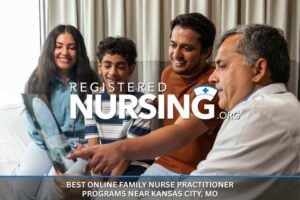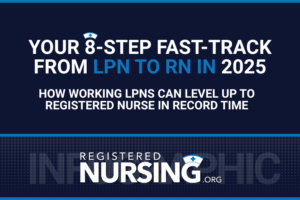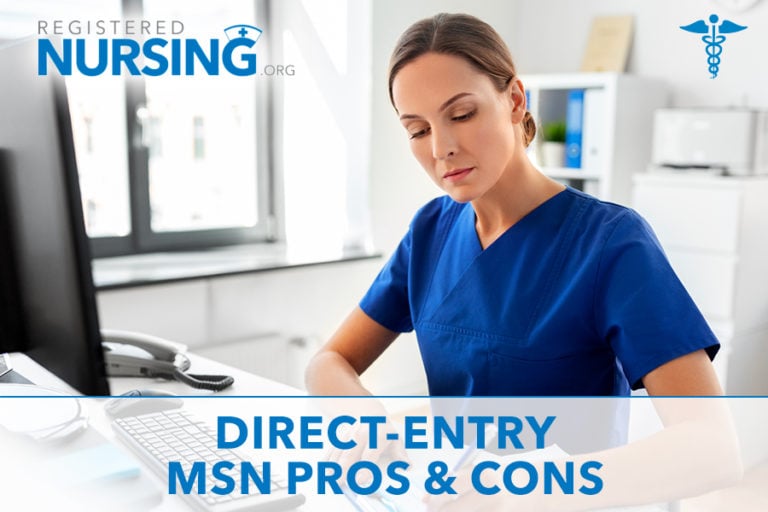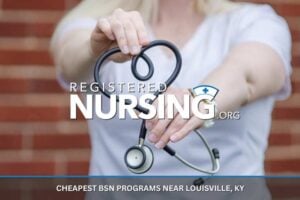The pursuit of a Master of Science in Nursing (MSN) is a significant step for individuals aspiring to advance their nursing careers and take on more prominent roles in healthcare. While traditional MSN programs are designed for registered nurses (RNs) with prior nursing experience, direct-entry MSN programs offer an alternative pathway for those from non-nursing backgrounds or with limited nursing experience to enter the nursing profession and earn an MSN. This unique approach presents both advantages and disadvantages. In this article, we will explore the pros and cons of the direct entry MSN program to help aspiring nurses make informed decisions about their educational and career paths.
Understanding the Direct-Entry MSN Program
Direct entry MSN programs, also known as master’s-entry to nursing practice (MENP) or accelerated MSN programs, are designed for individuals with non-nursing bachelor’s degrees or those with limited nursing experience. These programs offer a streamlined route into the nursing profession by combining foundational nursing education with graduate-level coursework.
The structure of direct-entry MSN programs typically involves an initial period of foundational nursing coursework and clinical experience to prepare students for RN licensure. After obtaining RN licensure, students proceed to the graduate-level portion of the program, which focuses on advanced nursing practice and specialization. The duration of these programs varies but often ranges from 18 to 24 months.
The Pros of the Direct Entry MSN Program
1. Efficient Entry into Nursing
Direct entry MSN programs provide an efficient and accelerated pathway for individuals with non-nursing backgrounds to enter the nursing profession. These programs are designed to streamline the educational process by integrating foundational nursing coursework with advanced practice training. By combining theory and clinical experiences, direct entry MSN programs enable students to acquire the necessary knowledge, skills, and competencies to become registered nurses (RNs) and earn their Master of Science in Nursing (MSN) in a shorter time frame compared to traditional educational routes. This efficient entry into nursing allows graduates to quickly transition into the workforce and begin making meaningful contributions to patient care and healthcare delivery.
2. Advanced Nursing Roles
Direct entry MSN graduates are uniquely prepared for advanced nursing roles, such as family nurse practitioner, nurse midwife, nurse educator, or nurse administrator. These programs offer specialized training in various areas of advanced practice nursing, including primary care, acute care, pediatrics, and women’s health. Through rigorous coursework, hands-on clinical experiences, and mentorship from experienced nursing professionals, direct-entry MSN graduates develop the clinical expertise, critical thinking abilities, and leadership skills required to take on more complex and autonomous roles in healthcare. By assuming these advanced nursing roles, graduates can contribute to improved patient outcomes, healthcare quality, and access to care within their communities.
3. Diverse Backgrounds
Direct entry MSN programs attract a diverse and multifaceted student body, comprising individuals from various educational, cultural, and professional backgrounds. This diversity enriches the learning environment and fosters a collaborative and inclusive educational experience. Students benefit from exposure to a wide range of perspectives, experiences, and ideas, which encourages critical thinking, cultural competence, and innovative approaches to nursing practice. By embracing and valuing diversity, direct entry MSN programs prepare graduates to effectively address the unique healthcare needs and challenges of diverse populations, ensuring equitable and compassionate care for all patients.
4. High Demand for MSN Graduates
There is a growing demand for advanced practice nurses with MSN degrees in today’s healthcare landscape. The increasing complexity of healthcare delivery, rising patient acuity, and evolving healthcare policies and regulations are driving the need for specialized and highly skilled nursing professionals. Direct entry MSN graduates are well-positioned to meet this demand, as they are equipped with the advanced knowledge, clinical competencies, and leadership abilities required to provide high-quality, patient-centered care across various healthcare settings. With their unique skill set and expertise, MSN-prepared nurses are valued members of interdisciplinary healthcare teams, contributing to improved patient outcomes, enhanced healthcare quality, and increased access to care for individuals and communities.
5. Competitive Salaries
Direct entry MSN graduates often command competitive salaries and comprehensive benefits due to their advanced education, specialized training, and ability to take on advanced nursing roles. With the increasing demand for MSN-prepared nurses and the added value they bring to healthcare organizations, graduates can expect to receive attractive compensation packages that reflect their expertise, skills, and contributions to patient care and healthcare delivery. In addition to competitive salaries, MSN-prepared nurses may also benefit from opportunities for professional growth, career advancement, continuing education, and leadership development, positioning them for long-term success and fulfillment in their nursing careers.
The Cons of the Direct Entry MSN Program
1. Intensive and Accelerated
Direct entry MSN programs are often intensive and accelerated, requiring students to complete a significant amount of coursework and clinical hours in a condensed timeframe. This rigorous pace can be challenging and demanding, placing high levels of stress and pressure on students as they strive to meet the program’s academic and clinical requirements. The accelerated nature of these programs may also limit opportunities for students to fully absorb and integrate complex nursing concepts and skills, potentially compromising the depth and quality of their education and preparation for advanced nursing roles.
2. Limited Nursing Experience
One of the potential drawbacks of direct entry MSN programs is the limited amount of nursing experience students gain compared to traditional nursing programs. While these programs offer comprehensive theoretical knowledge and clinical training in advanced practice nursing, the condensed nature of the curriculum may not allow students to fully develop and refine their clinical skills, critical thinking abilities, and professional judgment to the same extent as graduates of traditional nursing programs. This limited nursing experience may pose challenges for graduates as they transition into advanced nursing roles and navigate the complexities of patient care and healthcare delivery in diverse healthcare settings.
3. High Tuition Costs
Direct entry MSN programs often come with high tuition costs due to the accelerated nature of the curriculum, specialized training, and advanced level of education provided. These high tuition costs can be a significant financial burden for students, requiring them to take on substantial student loan debt or seek alternative funding sources to finance their education. The financial strain associated with high tuition costs may deter some individuals from pursuing a direct entry MSN program or cause financial hardship for graduates as they begin their nursing careers and work to repay their student loans while managing other living expenses.
4. RN Licensure Exam
Upon completion of a direct entry MSN program, graduates are required to pass the National Council Licensure Examination for Registered Nurses (NCLEX-RN) to obtain their RN licensure and practice as registered nurses.
While direct entry MSN programs prepare students for advanced nursing roles, they must also ensure that graduates are adequately prepared to pass the NCLEX-RN and meet the licensure requirements of their state board of nursing. The comprehensive nature of the NCLEX-RN and the high stakes associated with licensure can be stressful and challenging for graduates, requiring them to invest additional time, effort, and resources in preparing for and successfully passing the exam to begin their nursing careers. If you’re worried about passing, don’t fret; we have an entire NCLEX-RN exam study guide for your review.
Is the Direct Entry MSN Program Worth It?
The decision to pursue a direct entry MSN program should be carefully considered based on individual goals, circumstances, and preferences. The efficiency and advanced nursing roles associated with this pathway make it a compelling choice for some. However, the intensity, limited nursing experience, and tuition costs can pose challenges that prospective students should be prepared to address.
To determine if the direct entry MSN program is worth it, individuals should:
- Assess Career Goals: Consider whether an MSN’s advanced roles and responsibilities align with long-term career aspirations.
- Evaluate Readiness: Reflect on readiness for an intensive and accelerated program, especially if transitioning from a non-nursing background.
- Research Programs: Explore different direct-entry MSN programs, their specializations, and their admission requirements to find the best fit.
- Financial Planning: Develop a clear financial plan, including tuition costs, potential sources of funding, and expected return on investment.
- Seek Guidance: Consult with current or former students of direct entry MSN programs, faculty, and career advisors to gain insights and advice.
Latest Articles & Guides
One of the keys to success as a registered nurse is embracing lifelong learning. Our articles and guides address hot topics and current events in nursing, from education to career mobility and beyond. No matter where you are on your nursing journey, there’s an article to help you build your knowledge base.
Browse our latest articles, curated specifically for modern nurses.




